
Announcing: An Evening with Margaret Atwood – Friday, Nov. 15
The GES Center is excited to announce: An Evening with Margaret Atwood, Internationally-renowned author of The Handmaid's Tale, Friday, Nov. 15 at Talley Student Union, NC State University. ...Continue reading "Announcing: An Evening with Margaret Atwood – Friday, Nov. 15"
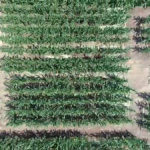
NC State corn maze opens at NC Museum of Art through October [video]
WTVD ABC 11, August 13, 2019 | A quarter-acre corn maze is now open at the NC Museum of Art's Ann and Jim Goodnight Museum Park....Continue reading "NC State corn maze opens at NC Museum of Art through October [video]"

USDA to biotech: Call your own compliance
Steven Suppan, July 30, 2019 | The U.S. Department of Agriculture wants agribusiness to sell more genetically engineered (GE) seeds and food products all over the world, as soon as possible. This rule would go beyond already controversial genetically modified organisms (GMOs) to encompass hundreds of new products of new gene and genome editing techniques. The fastest way to do that?...Continue reading "USDA to biotech: Call your own compliance"

GES Center awarded half-million dollar grant to study responsible innovation of food nanotechnology
July 25, 2019 | Khara Grieger and Jennifer Kuzma will lead a two-year, USDA-funded study of responsible innovation of food nanotechnology....
Faculty Spotlight: Khara Grieger
Patti Mulligan, July 15, 2019 | INTERVIEW: We sat down with the GES Center's newest Senior Research Scholar, Khara Grieger. She joined our team in the spring of 2019, but has already given a colloquium and is working on several nanotechnology-related research projects....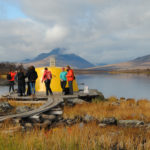
Field_Notes: Expanding the Possibilities of Bioart
Hannah Star Rogers, April 8, 2019 | In the first entry in a series of contributions, Hannah Star Rogers convenes reflections from Leena Valkeapää, Saara Hannula, and Erich Berger on the 2018 convening of the Helsinki-based Bioart Society....Continue reading "Field_Notes: Expanding the Possibilities of Bioart"
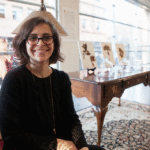
Curating Art and Science: Art’s Work in the Age of Biotechnology
Hannah Star Rogers, March 25, 2019 | Resurrecting the Sublime is a synthetic biology based artwork which presents the scents of extinct plants, produced through a combination of techniques, materials, and ideas from art and biotechnology. This work will be installed as part of the Art's Work/Genetic Futures exhibit in the fall of 2019....Continue reading "Curating Art and Science: Art’s Work in the Age of Biotechnology"
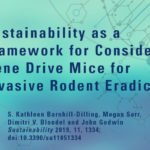
Sustainability as a Framework for Considering Gene Drive Mice for Invasive Rodent Eradication
March 4, 2019 | Sustainability as a Framework for Considering Gene Drive Mice for Invasive Rodent Eradication, by S. Kathleen Barnhill-Dilling, Megan Serr, Dimitri V. Blondel and John Godwin. Abstract: Gene drives represent a dynamic and controversial set of technologies with applications that range from mosquito control to the conservation of biological diversity on islands. Currently, gene drives are being developed in mice that may one day serve as an important tool for reducing invasive rodent pests, a key threat to island biodiversity and economies. ...
2018-19 University Faculty Scholars Named
NC State’s 2018-19 class of University Faculty Scholars was announced today. These 20 early- and mid-career faculty [including GES Center Executive Committee Member, Jason Delborne] receive this designation due to their significant academic achievements and contributions to NC State through their teaching, research and community engagement....Continue reading "2018-19 University Faculty Scholars Named"

NASEM Sackler SciComm: The promise and perils of gene drives
In November of 2017, an interdisciplinary panel discussed the complexities of gene drive applications as part of the third Sackler Colloquium on “The Science of Science Communication.” This paper builds on the ideas and conversations from the session to provide a more nuanced discussion about the context surrounding responsible communication and decision-making for cases of post-normal science. Deciding to use gene drives to control and suppress pests will involve more than a technical assessment of the risks involved, and responsible decision-making regarding their use will require concerted efforts from multiple actors....Continue reading "NASEM Sackler SciComm: The promise and perils of gene drives"
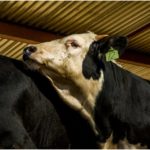
WP: Gene-edited farm animals are coming. Will we eat them?
“We’re at this inflection point in society, where gene editing is really taking off, and now is the time we could have a more sustained public conversation about how we want it used in our world and how we don’t want it to be used,” said Jennifer Kuzma, co-director of the Genetic Engineering and Society Center at North Carolina State University. “All the polls indicate that people are less comfortable with animal biotechnology than plant biotechnology... A regulatory system cannot be based 100 percent on science or scientific risk, and values come into play when setting the standards.”...Continue reading "WP: Gene-edited farm animals are coming. Will we eat them?"

GES Center Co-director Jennifer Kuzma Named AAAS Fellow
Jennifer Kuzma, Goodnight-North Carolina GlaxoSmithKline Foundation Distinguished Professor in Social Sciences and co-director of the Genetic Engineering and Society Center at NC State, elected for distinguished translational work in bridging the bench and society, advancing anticipatory governance of new technologies, and contributions to methods for oversight policy analysis....Continue reading "GES Center Co-director Jennifer Kuzma Named AAAS Fellow"
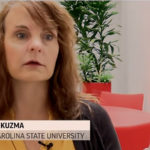
AP: Kuzma discusses need for case-by-case scrutiny of gene-edited foods
Per Kuzma, companies will have to be up-front about how these new foods were made and the evidence that they’re healthy. She wants regulators to decide case-by-case which changes are no big deal and which might need more scrutiny.“Most gene-edited plants and animals are probably going to be just fine to eat. But you’re only going to do yourself a disservice in the long run if you hide behind the terminology,” Kuzma said....Continue reading "AP: Kuzma discusses need for case-by-case scrutiny of gene-edited foods"
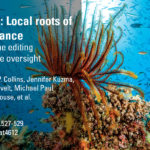
Editing nature: Local roots of global governance
Dr. Jennifer Kuzma, Goodnight-NC GSK Foundation Distinguished Professor and Co-director of the Genetic Engineering and Society Center, was one of the lead authors on an interdisciplinary team calling for global oversight of environmental gene editing in this Science Policy Forum, Editing Nature: Local roots of global governance....Continue reading "Editing nature: Local roots of global governance"
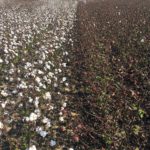
The Problems Driving Resistance to Bt Crops—and Some Proposed Solutions
By: DOMINIC REISIG, Entomology Today | Bt crops—those genetically engineered to produce an insecticidal toxin from the bacterium Bacillus thuringiensis—are special due to their benefits: reducing foliar insecticide applications, which increase populations of beneficial insects and minimize environmental harm; reducing pest populations throughout the landscape; and preserving yield, to name a few. Therefore, preventing resistance to Bt crops is important and is usually formalized in a set of Insecticide Resistance Management (IRM) practices. Because bollworm is now resistant to two Bt toxin families in cotton, IRM practices may have to change to slow resistance to other Bt toxins....Continue reading "The Problems Driving Resistance to Bt Crops—and Some Proposed Solutions"